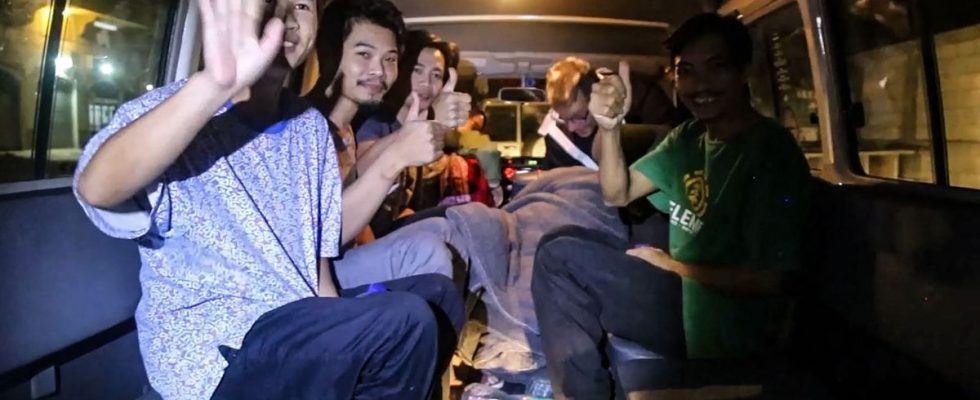“The prisoners look healthy and comfortable as they greet the resistance fighters. » Viewed more than 7.5 million times on terms with their guardians. However, we hear a male voice saying to the hostages: “Keep greetings”, an order which questions the conditions of filming of these images.
On Tuesday, it was a letter allegedly written by one of the released Israeli hostages, Danielle Aloni, who went viral on social networks. The hostage, who was released on Friday with her daughter, thanks her guards for the good treatment of the little girl. Danielle Aloni has not confirmed the authenticity of the letter.
The next day, Hamas released new images, showing hostages all smiles as they were released. Documents which contradict certain accounts of detention given by relatives of the hostages.
Hostage-taking that “goes against” the political legitimacy that Hamas wants to build
So what is Hamas trying to do by broadcasting these images? “Since October 7, he has been pursuing a dual media strategy,” analyzes for 20 minutes Devorah Margolin, an American researcher specializing in terrorism as well as propaganda and strategic communications. “On the one hand, Hamas projects the violent actions carried out by its fighters that day to its supporters and, on the other hand, it attempts to gain international sympathy for its cause by highlighting its supposed compassion for respect of the hostages.
The expert emphasizes that these hostage-taking of women and children “go against” the political legitimacy that Hamas has been trying to build for several years. While the group has already taken adult men hostage, the capture of women and children “represents a turning point for the group.”
Devorah Margolin warns, however, that “appearances can be deceiving.” “Those who broadcast supposedly joyful images of civilian hostages seek to minimize the damage on the international stage that October 7 caused to Hamas’ claims to legitimacy as a political actor,” explains the Washington Institute researcher. for Middle East policy. For the expert, “they also seek to minimize the experiences of these hostages”.
Hamas no longer has an account in its name on mainstream social networks. The last, a Twitter account, was closed in 2019, recalls Devorah Margolin. In the past, the group has adapted its communication to different target audiences. In previous conflicts, Hamas has addressed international audiences seeking to generate “sympathy for its cause.” “This differs from documents created in Arabic, which focus on resistance [contre Israël] », Develops the expert.
Hamas has released 70 hostages since the truce took effect on November 24. 23 Thais, one Filipino and three Russian-Israelis were also released, but outside the framework of the agreement, according to a report communicated by AFP. 210 Palestinians imprisoned in Israel were also released.

